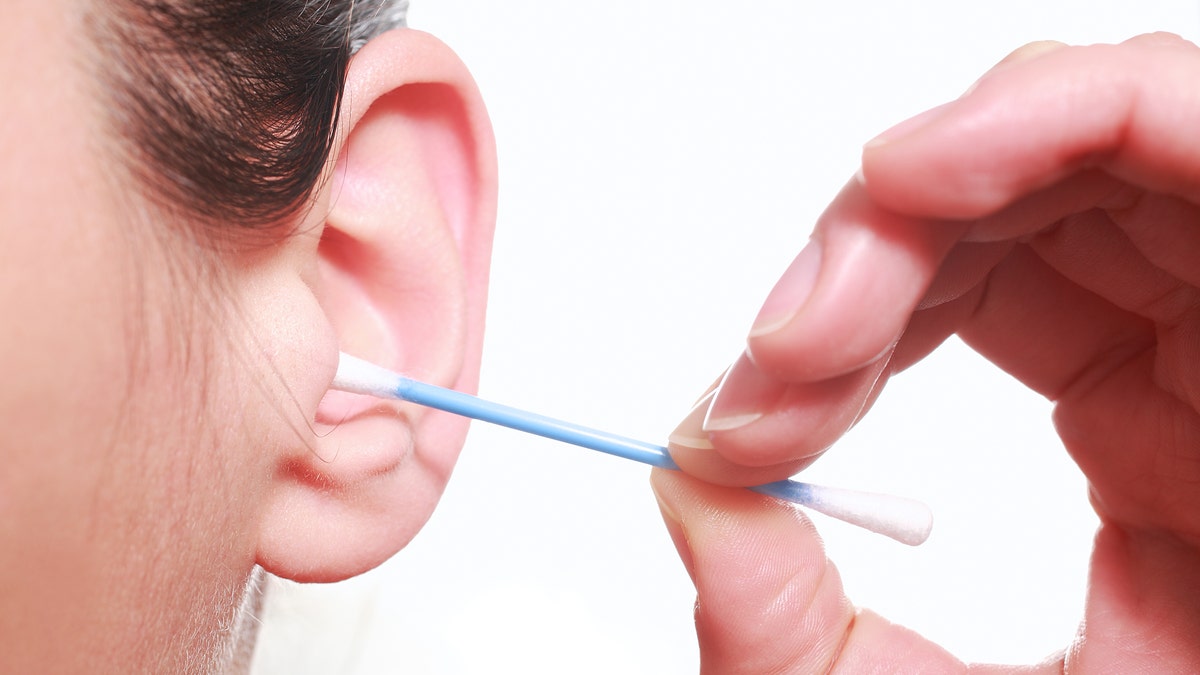
Photography closeup of a woman cleaning the ears with a cotton stalk; (iStock)
Sticking a cotton swab in your ear on the regular may offer what feels like sweet relief from seemingly impacted wax, but experts say the practice isn’t only unnecessary— it’s also risky.
“Patients often think that they are preventing earwax from building up by cleaning out their ears with cotton swabs, paper clips, ear candles, or any number of unimaginable things that people put in their ears. The problem is that this effort to eliminate earwax is only creating further issues because the earwax is just getting pushed down and impacted further into the ear canal,” Dr. Seth R. Schwartz, of the American Academy of Otolaryngology-Head and Neck Surgery Foundation, which released new guidelines Tuesday, said in a news release. “Anything that fits in the ear could cause serious harm to the ear drum and canal with the potential for temporary or even permanent damage.”
In the updated guidelines, Schwartz and his colleagues write what the organization and other experts have long said: that earwax helps clean, protect and oil ears. During the ear’s natural cleaning process, jaw motion and growing skin in the ear canal helps push earwax from inside the ears toward the ear opening, where bathing or flaking leads to earwax removal. Small matter like dirt and dust prevents earwax from burrowing into the ear and affecting hearing and comfort.
In some cases, that cleaning process doesn’t work, causing earwax to accumulate and partly block the ear canal. Such impaction occurs in an estimated one in 10 children, one in 20 adults, and more than one-third of geriatric and developmentally delayed individuals, according to the organization. Impacted earwax often leads to itching, tinnitus, hearing loss, ear pain, a feeling of fullness in the ear, odor coming from the ear, cough, or change in hearing aid function. These signs may signal a need for help from a medical professional, who can help identify safe solutions for earwax removal, and further address ear pain, drainage or bleeding.
As a rule of thumb, the organization advises against putting anything smaller than your elbow in your ear.
“There is an inclination for people to want to clean their ears because they believe earwax is an indication of uncleanliness,” Schwartz said in the release. “This misinformation leads to unsafe ear health habits.”







































